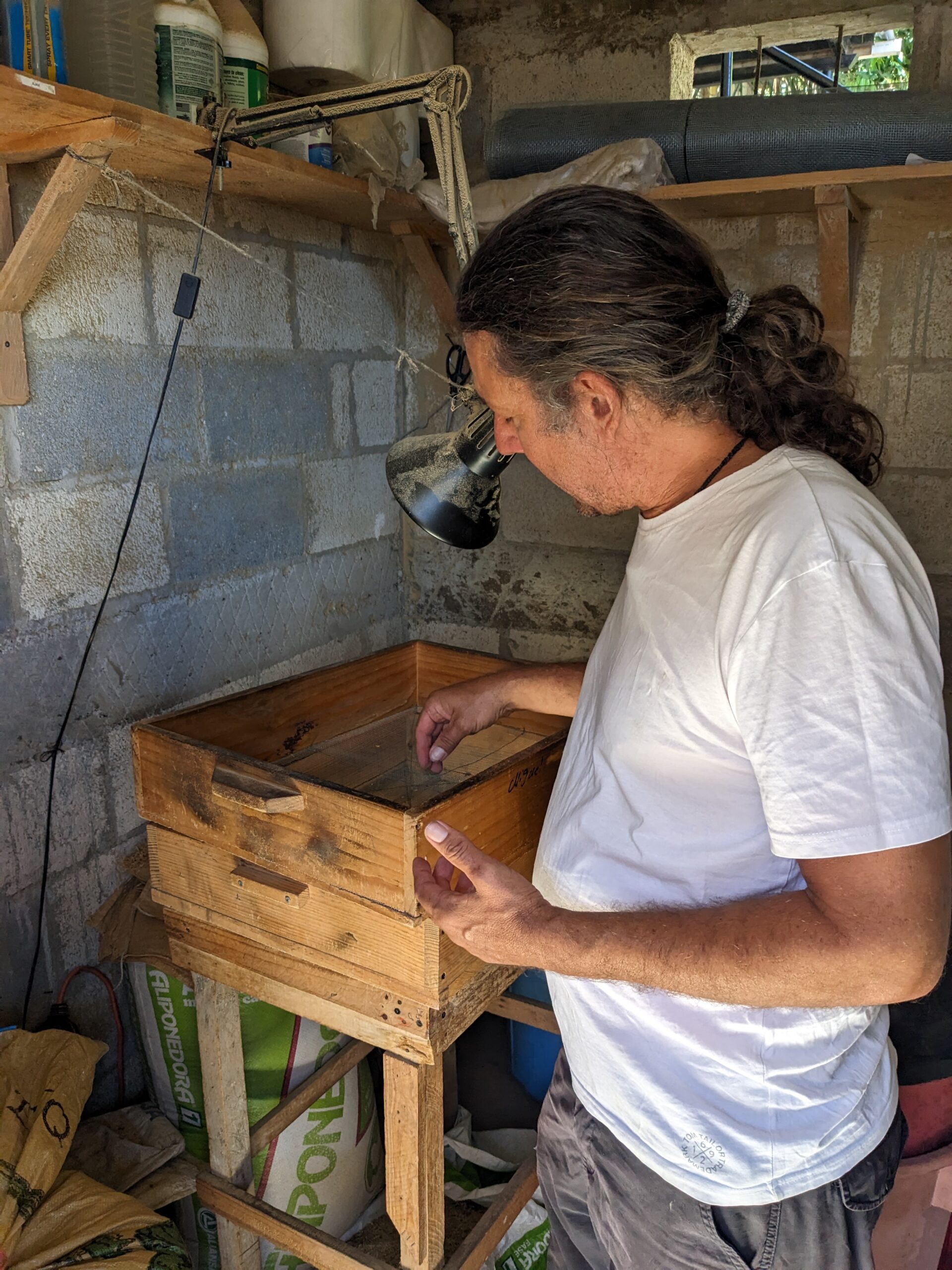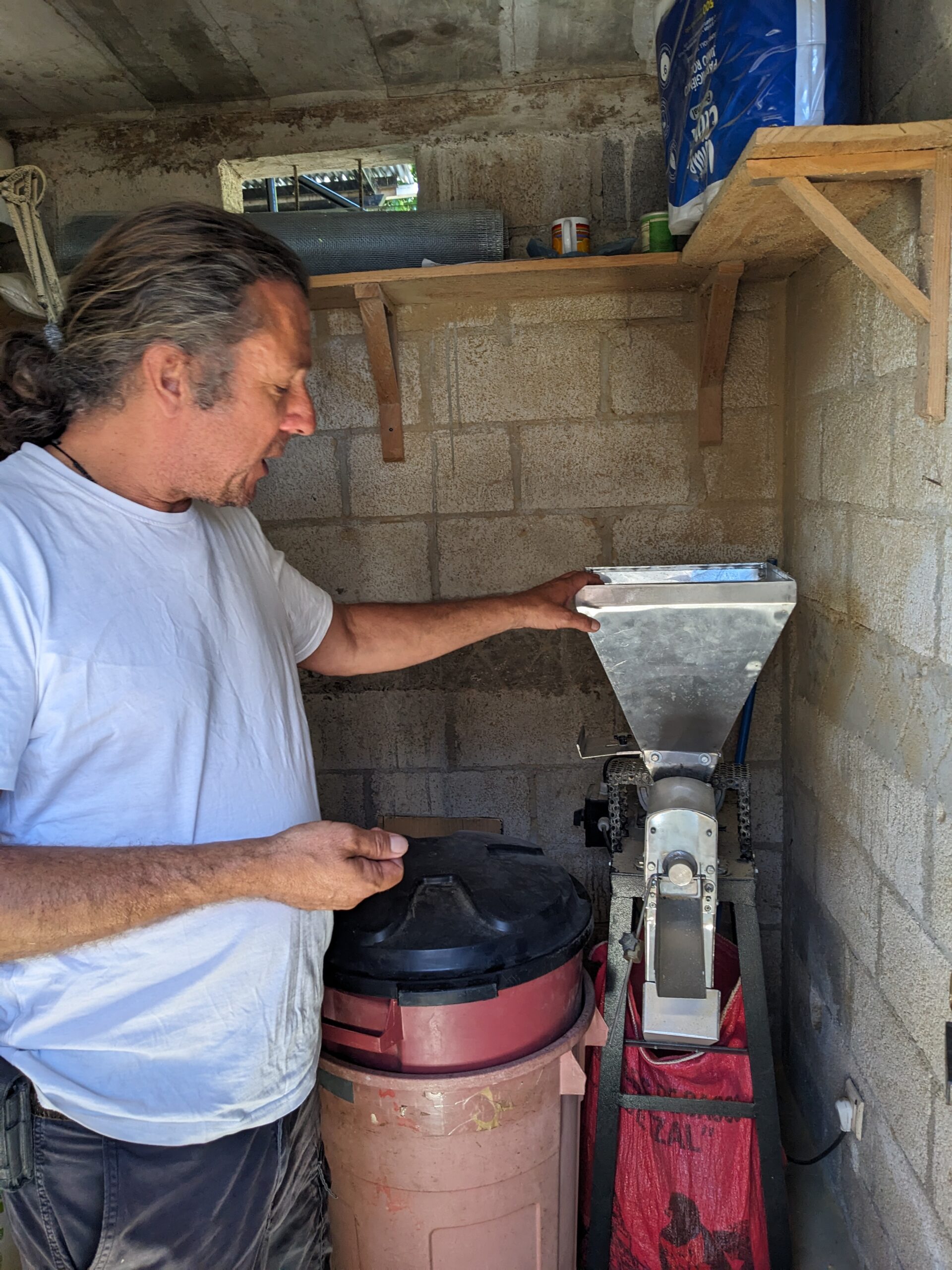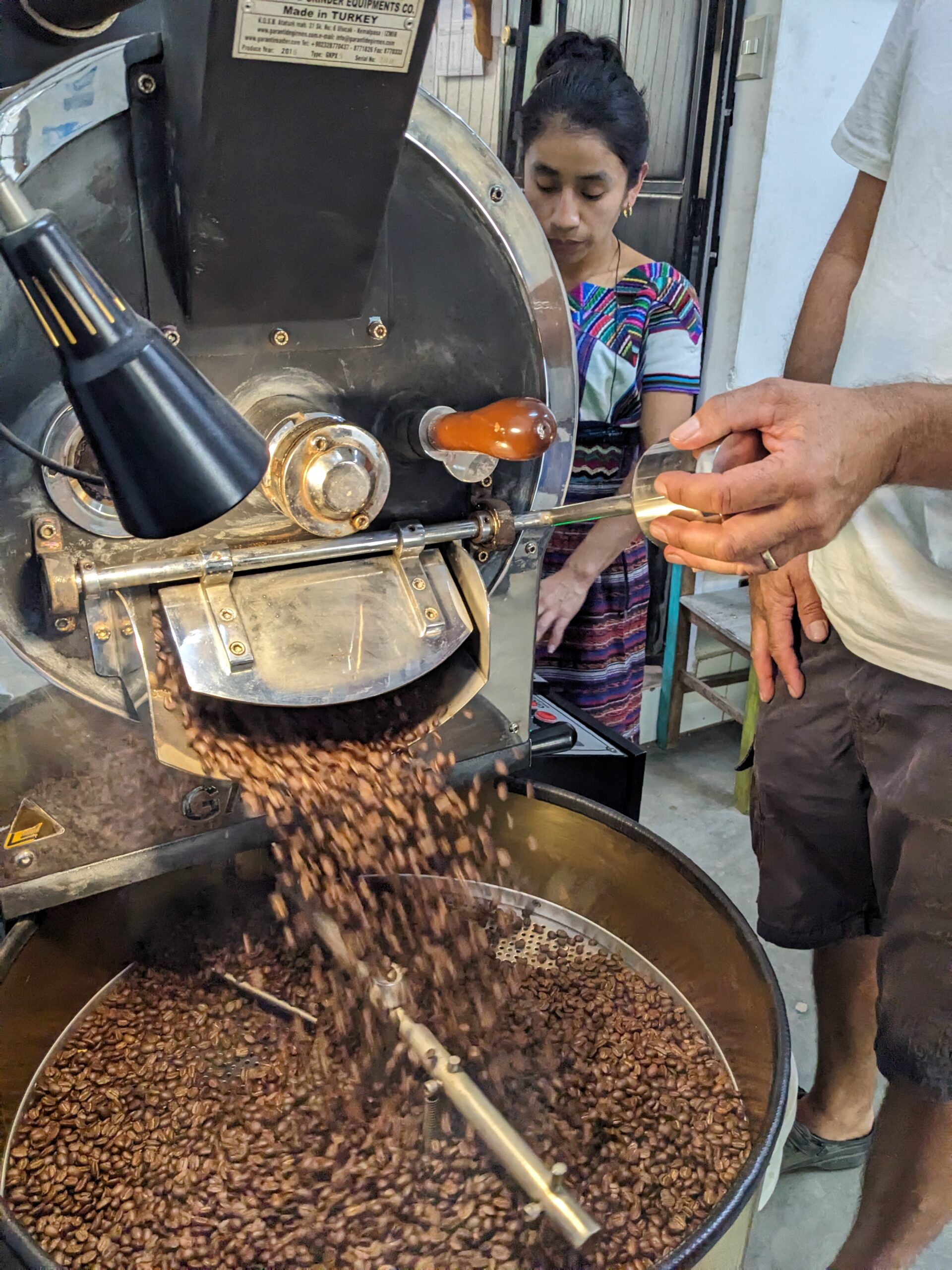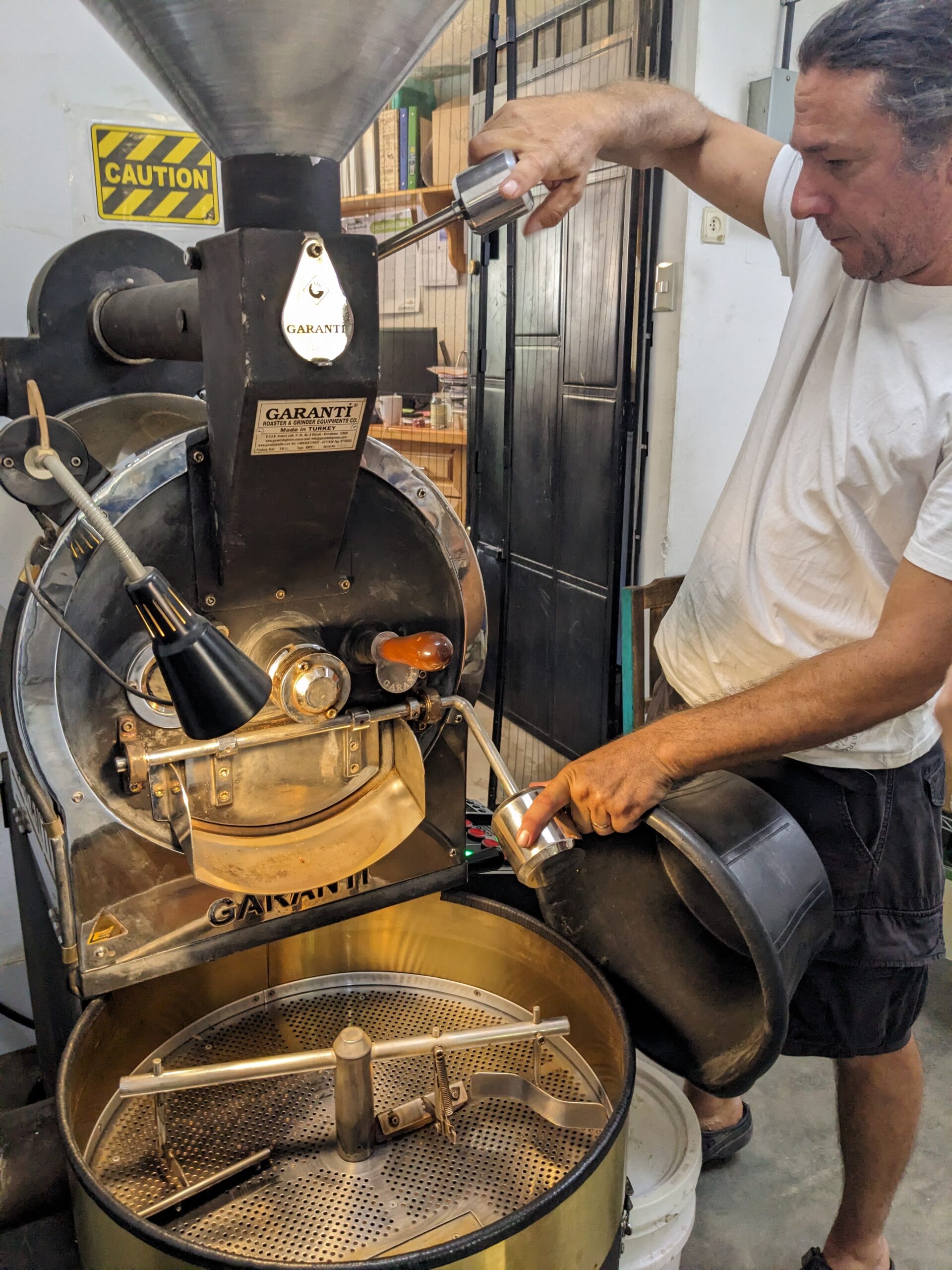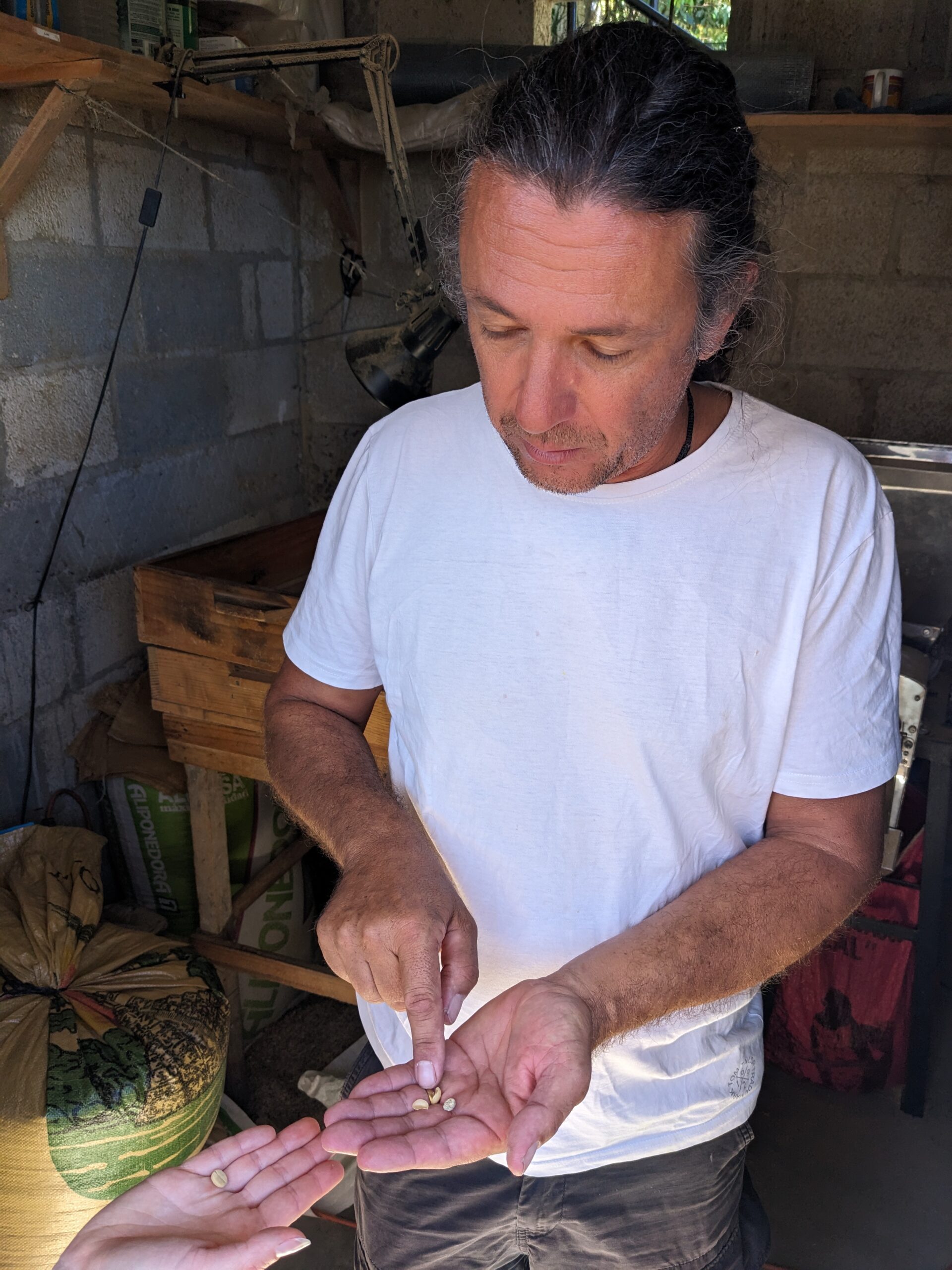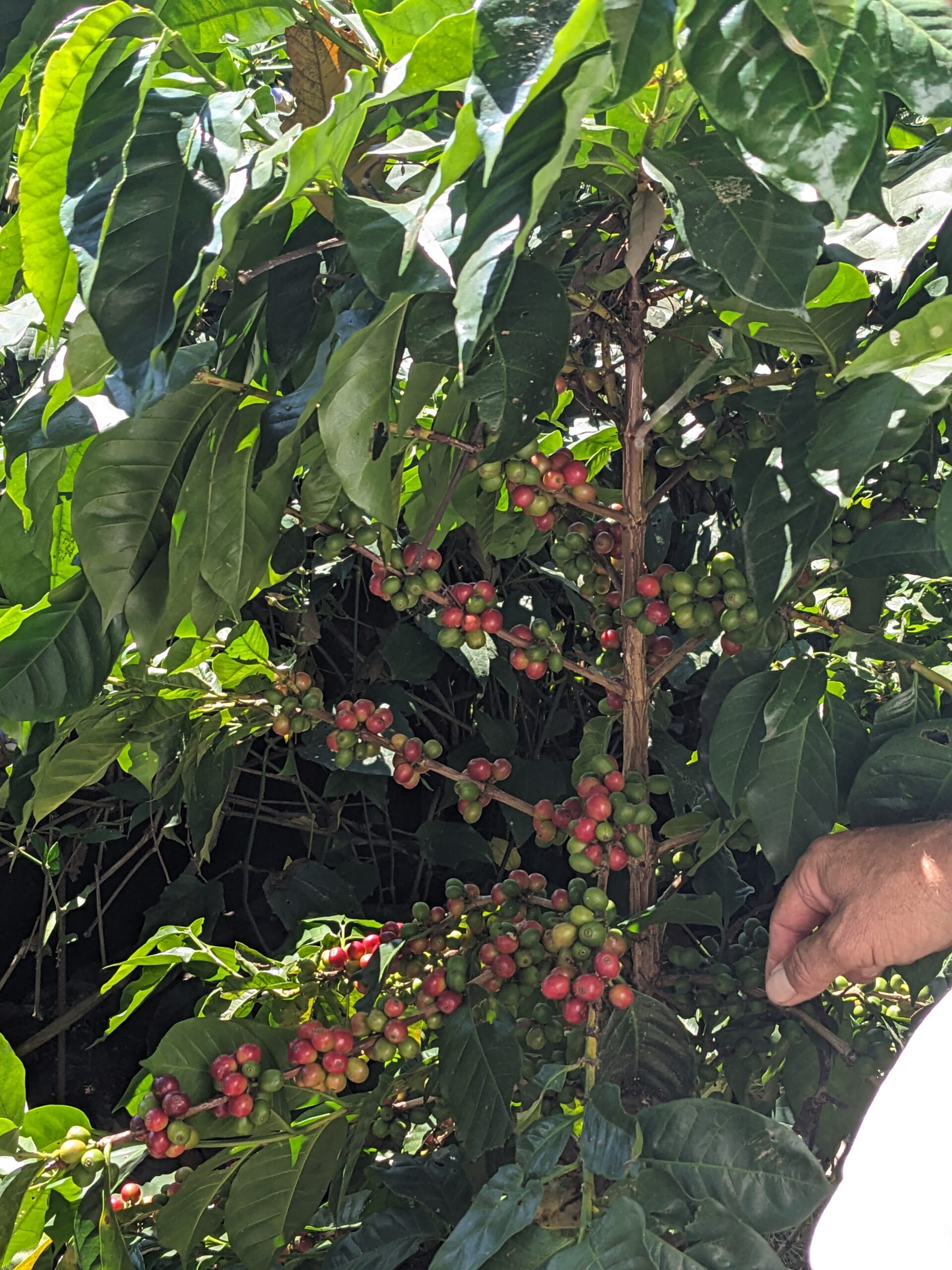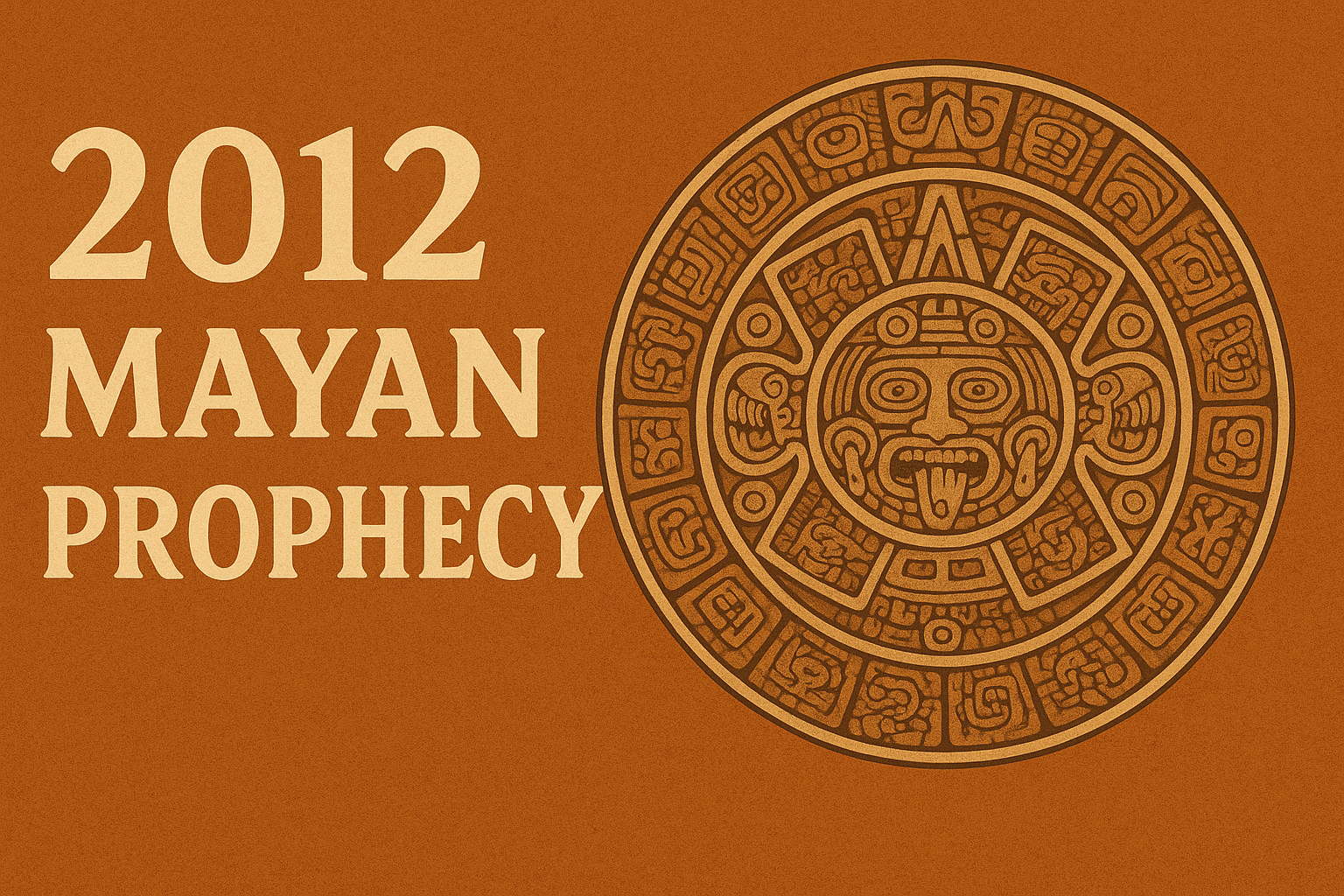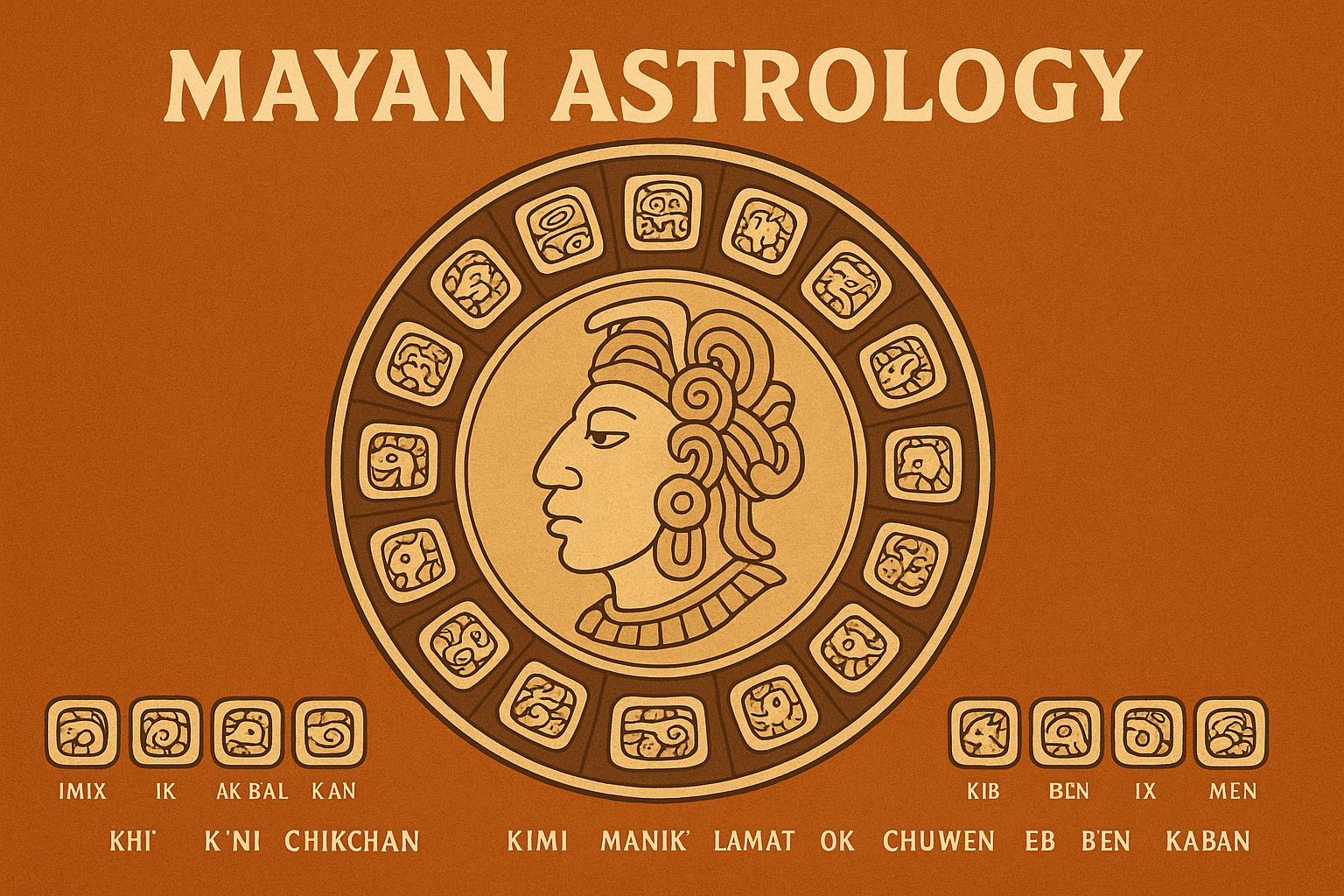The Magic of Local: A Unique Coffee Tour in Guatemala
At Eagle’s Nest Atitlán, we believe in celebrating the local treasures that make our region unique. Recently, we had the privilege of joining our friend and neighbor Tim on his renowned coffee tour—an experience that took us deep into the heart of Guatemala’s coffee culture and starts right next to Eagle’s Nest. Here, in the heart of Guatemala, a remarkable transformation is taking place—one that blends tradition, innovation, and a commitment to empowering the local economy.
This tour not only showcases the incredible process of coffee production but also highlights the values of sustainability, community empowerment, and a deep connection to the land. We are thrilled to announce that soon, we will offer this magical coffee tour to our guests, sharing the magic and meaning of Guatemala’s coffee heritage.
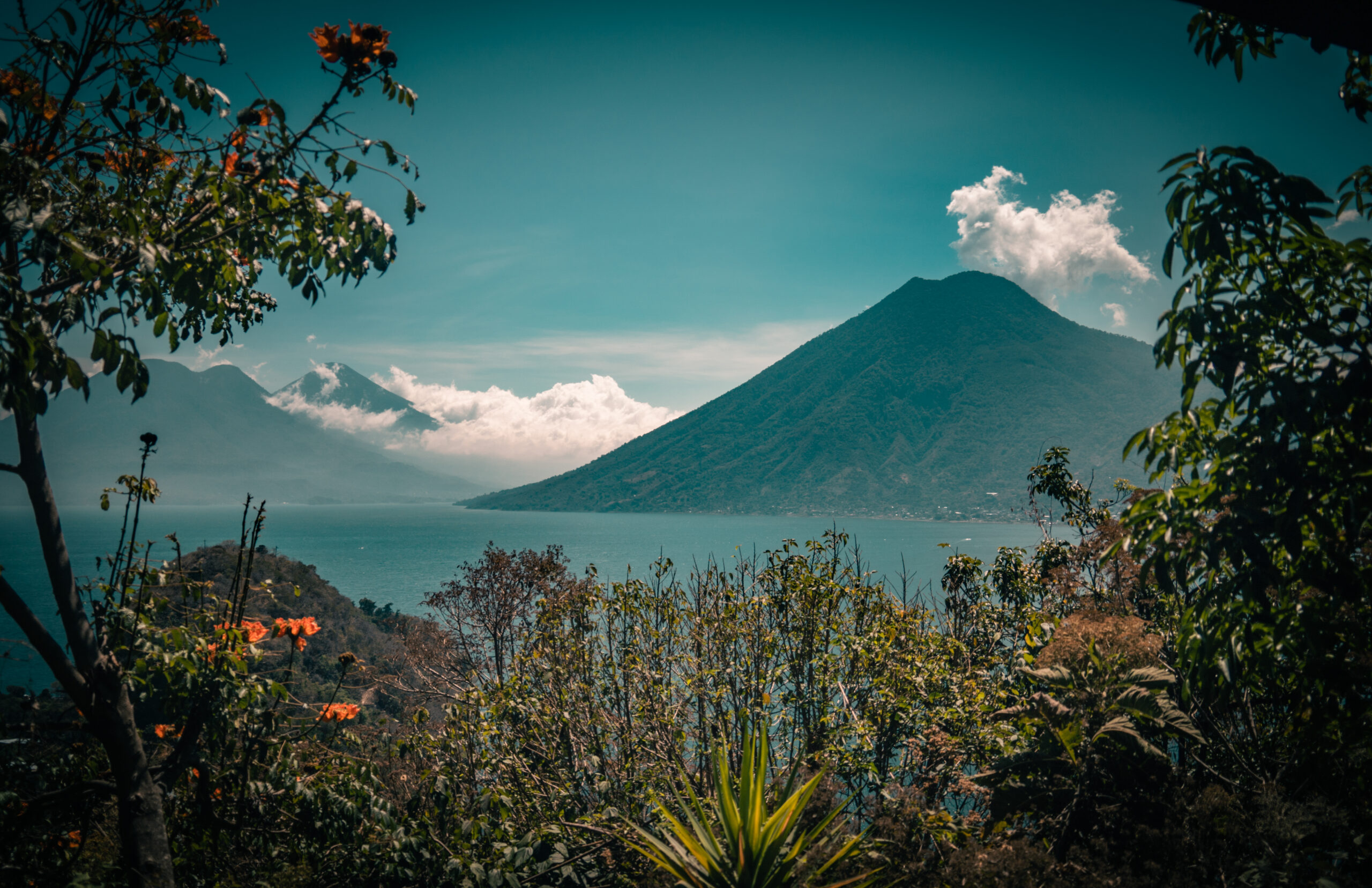
Vision and Values Behind the Coffee Tour
Today, we would like to take you on a journey that began as a passion for great coffee and has evolved into a movement that invites locals and visitors alike to experience the magic of coffee from bean to brew while empowering local communities.
At the core of this coffee tour experience is a vision: to create a thriving local economy by celebrating and retaining the value of regional products while providing authentic, high-quality experiences. This vision is guided by several key values:
1. Empowering the Local Economy
The coffee tour celebrates the micro-lot farming culture in Guatemala. Instead of large, industrialized plantations, small family farms produce coffee as a side income. This initiative ensures that the economic value stays within the community by sourcing beans directly from these farmers and paying them fairly.
2. Quality and Transparency
Visitors witness every step of the coffee production process—from the moment the cherry is harvested to the final roast. Each tour offers a behind-the-scenes look, fostering trust and appreciation for the craftsmanship involved. Whether it’s learning about fermentation techniques or watching the roasting process, every detail is shared openly.
3. Sustainability and Conscious Consumption
This initiative challenges the norms of globalization by reducing environmental impact and encouraging mindful consumption. The coffee is processed and sold locally, keeping profits within the community and reducing the carbon footprint associated with exports.
4. Community Impact
From employing local workers to providing training opportunities—such as certifying women in roasting techniques—this project uplifts the entire community. It’s about building opportunities, creating local pride, and empowering individuals.
5. Promoting Ecotourism
High-quality, locally sourced coffee has become a cornerstone of eco-conscious tourism in the region. By offering an authentic and educational experience, the coffee tour attracts visitors who value sustainability and cultural immersion.
A Journey Through the Coffee Making Process
The coffee tour takes visitors on a journey that highlights the art and science of coffee production.
How is Coffee Made?
Harvesting:
The tour begins with an introduction to the coffee fields, where visitors learn about the importance of altitude, shade, and biodiversity in cultivating high-quality Arabica beans. Families in the region grow coffee within agroforestry systems, blending coffee plants with avocado trees, bananas, and other crops to maintain soil health and natural symbiosis.
Processing Methods
Guatemala’s coffee farmers use three primary processing methods: washed, honey-processed, and natural. The most common method in the region is washed coffee, which involves:
- Depulping: Removing the outer skin of the coffee cherry with a machine.
- Fermentation: Allowing the beans to sit overnight in concrete tanks, where natural bacteria dissolve the honey layer.
- Washing and Sorting: The beans are washed in canals, where defective, lighter beans float and are skimmed off, leaving behind only the highest quality coffee.
- Drying: The washed beans are laid out to dry for about a week on patios and rooftops, a time-efficient process essential for small-scale operations.
Honey-processed and natural coffees, which require slower drying times of up to three weeks, are also explained as niche methods that create unique flavor profiles but demand more space, labor, and attention. These methods highlight the diversity and creativity of coffee production.
Roasting:
Visitors observe the roasting process, where the beans’ flavors are developed through precise temperature control. Using traditional drum roasters, the roaster demonstrates how variables like time and heat create different flavor profiles. From light to dark roasts, each choice transforms the beans’ character.
Sorting and Finishing
The parchment layer is removed from dried beans using a peeling machine, followed by meticulous hand-sorting to eliminate any remaining defects. This ensures only the finest beans are used. You’ll see how the “pea berries” (a rare occurrence where only one bean develops inside the cherry) are identified and why size uniformity matters for even roasting.
The Magic of Coffee
For those leading the coffee tour, the process never loses its magic. Transforming green coffee beans into aromatic perfection is both an art and a science. Every roast offers limitless possibilities for flavor manipulation, making each batch unique. As Tim explains, “It’s like looking at the lake—you never get tired of it.”
This passion for coffee has elevated the local industry, with top hotels and restaurants around Lake Atitlán now serving locally grown and roasted coffee. What was once a commodity trucked out for export has become a celebrated local product, strengthening the economy and creating pride in Guatemalan coffee.
A Philosophy for the Future
The coffee tour in Guatemala embodies the philosophy of “Think global, act local.” By keeping value within the community, it not only supports local livelihoods but also challenges unsustainable practices in the coffee industry. Visitors leave with a deeper understanding of the intricate journey behind their cup of coffee and the importance of supporting ethical, local businesses.
The Significance of Coffee in Guatemala
Coffee is more than a crop in Guatemala; it’s a cultural treasure with deep historical and economic significance. Introduced in the 18th century, coffee became a key export product, shaping the country’s identity and economy. Yet, many small-scale farmers have struggled to earn a fair income due to middlemen (known locally as coyotes) and industrialized practices. This tour shines a light on the importance of buying directly from farmers, empowering them, and celebrating their work.
Guatemala’s diverse coffee-growing regions, each with unique climate and soil conditions, produce some of the world’s most celebrated beans. This tour offers visitors a chance to experience this diversity firsthand while learning about the challenges and triumphs of local coffee production.
The Ripple Effect of Local Impact
Before this initiative, much of the coffee grown in the area was exported, leaving little value for the local economy. Today, local hotels and restaurants proudly serve regionally grown and roasted coffee, showcasing the area’s exceptional quality to tourists and residents alike.
This tour isn’t just about coffee—it’s about creating meaningful change in the community. By paying farmers above-market rates and keeping the production process local, the initiative ensures that profits remain within the region, benefiting everyone involved. The tour also creates jobs, particularly for women, who are trained and certified as skilled roasters.
Furthermore, the coffee tour has transformed the local economy. What was once a region exporting raw coffee is now a thriving hub for high-quality, locally roasted coffee. Hotels and restaurants around Lake Atitlán proudly serve this coffee, showcasing its exceptional quality to visitors and supporting the local community.
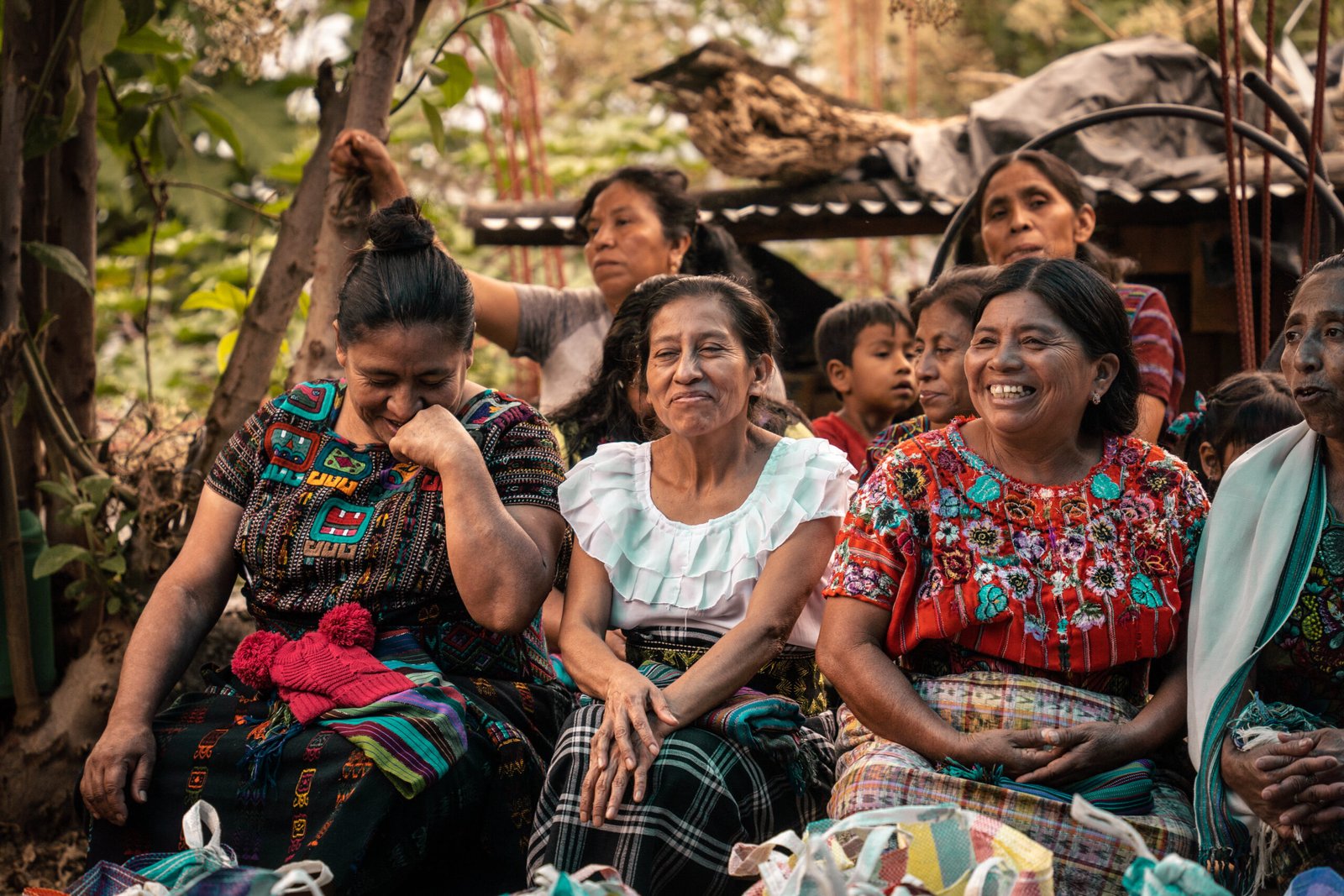
Why This Coffee Tour Stands Out
This tour stands apart by blending tradition, innovation, and a personal touch. From small-scale farming practices to hands-on roasting demonstrations, every step is infused with passion and care. The experience isn’t just about tasting great coffee—it’s about understanding the journey, supporting local livelihoods, and celebrating Guatemala’s rich coffee heritage.
Join Us Soon for This Unique Experience
At Eagle’s Nest Atitlán, we’re excited to start offering this incredible coffee tour to our guests. It’s a chance to immerse yourself in Guatemala’s coffee culture, learn from passionate experts, and contribute to a more sustainable and equitable coffee industry. Whether you’re a coffee connoisseur or just curious, this tour promises to be an unforgettable experience.
Guatemala’s coffee culture is as rich and complex as the flavors in your cup. A coffee tour here is more than a sightseeing activity—it’s an opportunity to immerse yourself in the traditions, stories, and hard work that make Guatemalan coffee some of the best in the world.
Whether you’re a coffee aficionado or just curious about the process, this tour will leave you with a deeper appreciation for every sip.
Ready to experience a Coffee Tour in Guatemala for yourself?
If you are interested in joining this unique coffee tour in Guatemala, reach out to us! We are excited to start offering this of tradition and community empowerment.
Your Questions About the Coffee Tour in Guatemala Answered
What is the coffee tour in Guatemala about?
The coffee tour offers an immersive experience into the coffee production process, from harvesting to roasting, all while supporting local farmers and sustainable practices.
How does the coffee tour in Guatemala support local communities?
The tour helps empower local farmers by paying above-market prices for their coffee, ensuring profits stay within the community and providing job training, particularly for women.
What makes this coffee tour in Guatemala unique?
This tour combines tradition with innovation, providing an in-depth look at the coffee production process, highlighting sustainability, and promoting community development in the Lake Atitlán region.
How long is the coffee tour?
The coffee tour typically lasts a few hours, taking visitors through the stages of coffee production—from harvest to roasting—while offering time for tasting and learning.
When can I book the coffee tour?
The coffee tour is available by appointment, so make sure to plan your tour ahead.
Looking for more unique experiences in Guatemala?
Check out our event schedule here! Also make sure to read this post for further travel inspiration: Book Guatemala Vacation: Your Ultimate Guatemala Vacation Guide – Exploring the Wonders of Guatemala
Curious to learn more about the coffee tour in Guatemala?
Make sure to check out their website!

